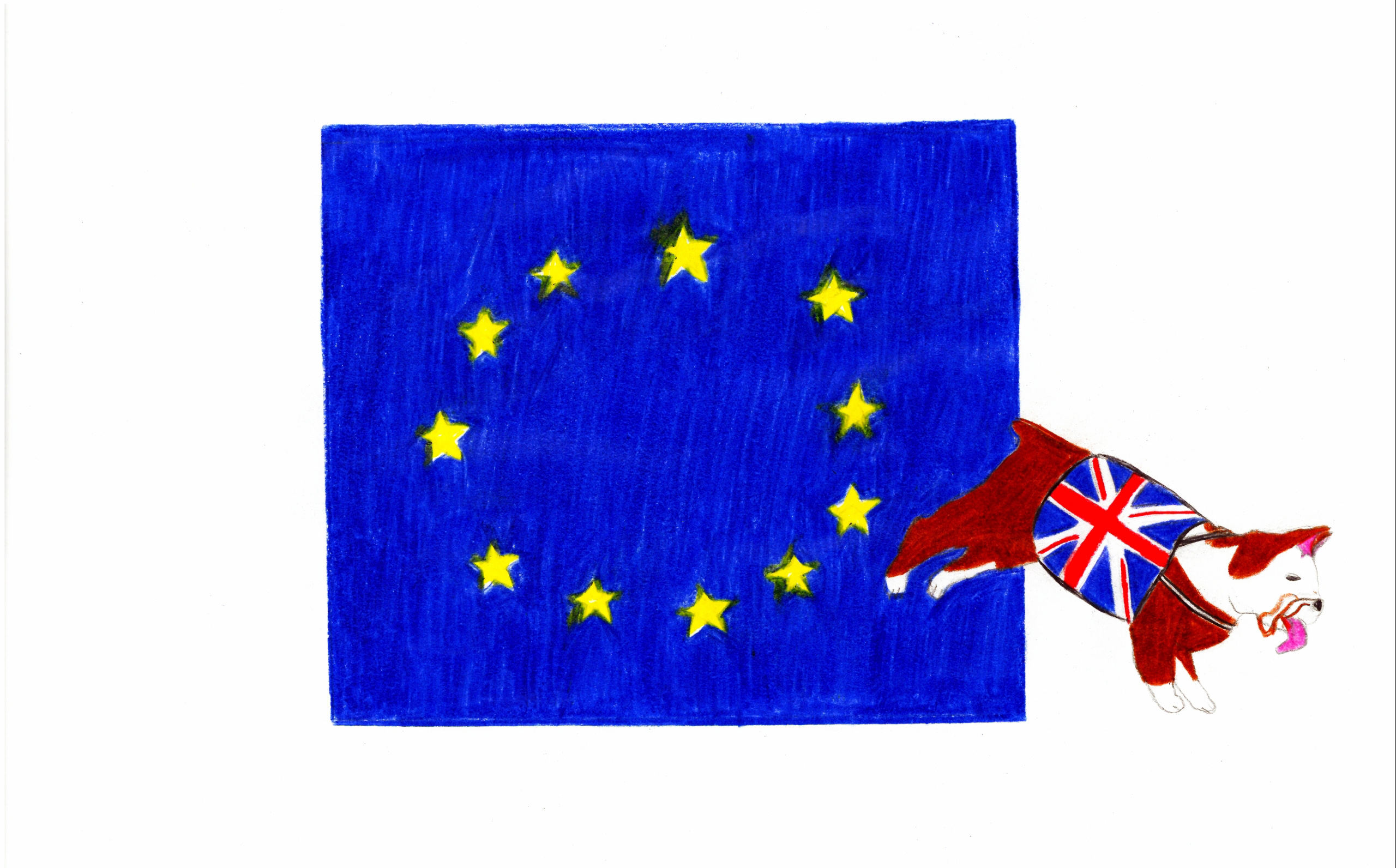
[dropcap]B[/dropcap]rexit. That one word that everybody questions. Regardless of how Brexit is viewed, the impacts of it affect mostly the UK and Ireland, especially those who travel either to or from the UK for a third level education.
The future of Ireland’s relationship with the UK will have serious implications for those who wish to study in Britain, or for British people who arrive on Irish soil to get their education. Currently, students can travel freely between the two islands and pay the EU standard college fees coinciding with whatever country they choose to study in. When Brexit is signed in next year, this will all change. British students studying in DCU and other universities across Ireland will now be treated as non-EU international students, meaning fees will be significantly steeper.
Thousands of students each year travel from the UK and Northern Ireland for a college education while it is estimated that approximately 10,000 Irish students travel to the UK and Northern Ireland for third level education. Since the Brexit vote, the numbers have significantly dropped as students fear the unknown when it comes to opportunities with their education.
“When the UK will no longer be a member state of the EU, British citizens will be treated as third country nationals in the EU, even though, due to the Common Travel Area, special rules apply in the relations between Ireland and the UK,” said Federico Fabbrini, Full Professor of Law and Director of the DCU Brexit Institute.
The Common Travel Area is an open borders area within the UK and Ireland in which citizens can travel freely between without having to apply for a visa. It has been in operation since the 1920s and allows for one to travel all islands off the UK coast, excluding overseas British territory. Due to the British withdrawal from the EU, it has been agreed for this territory to remain despite what will or has come from Brexit negotiations.
“Thanks to the rules of the Common Travel Areas, British citizens will not be required to obtain a visa to study in Ireland, but in my view, it is quite likely they will be subjected to the higher University enrolment fees that apply to non-EU citizens,” added Fabbrini.
Negotiations have come and gone and will return on the issue of the border in the north. It has been established that a hard border will, more than likely, not be the outcome, but the Brexit negotiators are adamant that a soft border will not occur either. A middle line will have to be reached and then, what is the effect of this for students traveling between the north and the republic?
Whatever the outcome, students in this position will have to deal with its consequences.
“The question of the border between the Republic of Ireland and Northern Ireland is of course the key issue which the EU and UK negotiators are trying to solve at the moment. Finding a solution to this problem is crucial in order to ensure an orderly withdrawal — but no one can exclude a hard Brexit at this stage,” said Fabbrini when asked about the issue of the border.
“Given the uncertainties these are pure speculations. But it’s clear that a hard border would complicate free movement of persons, including students — while of course a soft border would maintain things exactly as they are, with the resultant benefits in terms of ease of access to University education in the south,” added Fabbrini.
However, Sam Gyimah, the UK’s higher education minister, has stated that Irish students in the UK will avoid paying extensive fees after Brexit and the current situation is to remain, giving them the same access to student loans also. Gyimah has said that he is adamant to maintain the rights of students during Brexit negotiations and that UK students in Ireland would be treated the same way as domestic students in Ireland.
“We are working towards agreeing the high-level principles with Ireland and considering details of future eligibility criteria for student loans and support in England following the end of the implementation period in December 2020, including ways to ensure Irish students continue to have access to student finance support,” Gyimah previously explained.
“This includes rights to qualify for home fee status, student loans and other support, subject to meeting the same eligibility criteria as UK nationals.”
The University of Oxford has approximately 260 Irish students enrolled among the 10,000 currently studying in the UK or Northern Ireland. It is believed at this point that the increase of fees to an international degree will only serve to decrease the numbers of those attending British universities.
“That is why we have made a commitment to maintaining the rights of Irish nationals to access higher and further education courses on equal terms to UK nationals, on a reciprocal basis. This includes rights to qualify for student loans and support,” said Gyimah.
Although the effects of Brexit on students is unknown as of yet, and it is unclear as to the position of students in the UK or Ireland in terms of fees and access to education there, Irish applications to UK universities have decreased since the vote on Brexit.
While there has been no real change in policy yet, the amount of Irish students applying to study in the UK through UCAS, which is the UK’s version of the Central Applications Office, has fallen by 18 per cent, the number dropping from 4,750 to 3,900 this year. This is almost identical in Ireland as there has been a 15 per cent drop in CAO applications from British students, and 10 per cent from Northern Ireland.
The issue of Brexit is complex, even more so for students in the depths of it. Although free travel will remain under the Common Travel Area, the question of fees still lingers. Students either side of the border will be affected in some shape or form, but how exactly is yet to be decided.
Ellen Fitzpatrick
Image Credit: Sabrine Donohoe



